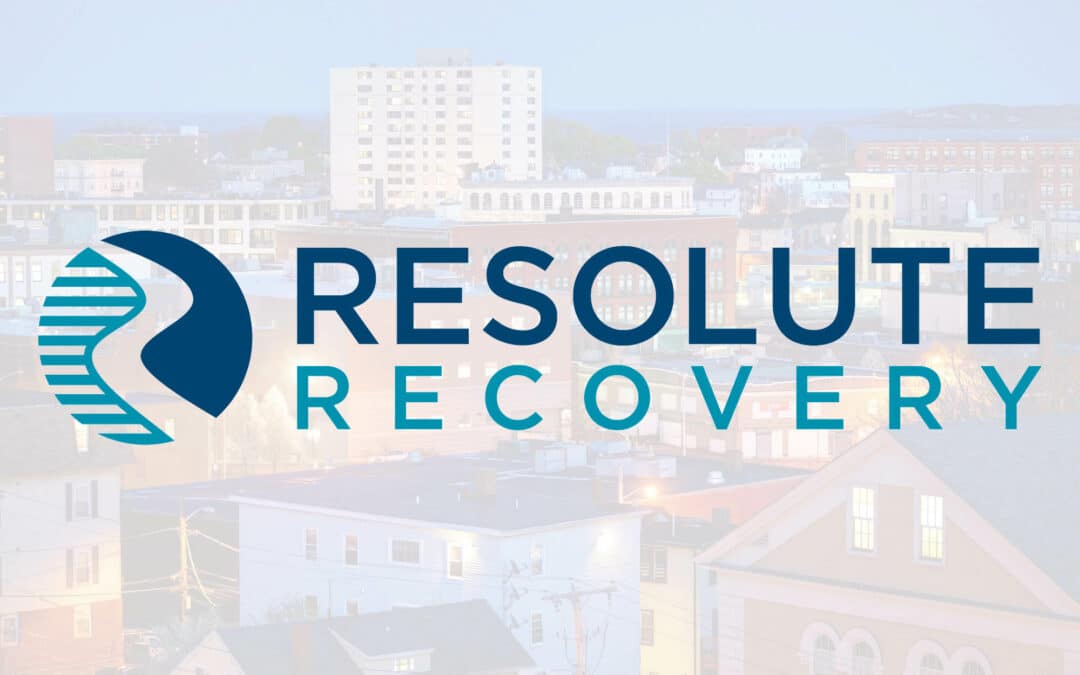Recognizing the Need for Help
Getting help for a drug problem starts with honest recognition of the issue. You might notice changes in your daily routine, relationships, or physical health that signal something’s wrong. Acknowledging drug issues requires you to look at specific patterns in your behavior and body.
Common signs of drug addiction include:
- Neglecting responsibilities at work, school, or home
- Withdrawing from family and friends
- Experiencing financial difficulties due to drug use
- Developing tolerance (needing more of the substance to feel the same effects)
- Physical symptoms like changes in appetite, sleep patterns, or appearance
- Continuing use despite negative consequences
Self-awareness plays a critical role in getting professional help for addiction. You need to recognize when recreational use has crossed into dependency. This awareness often comes gradually—you might notice you’re using drugs to cope with stress, emotions, or daily life rather than for enjoyment.
Denial and fear create significant barriers. You might tell yourself “I can stop anytime” or worry about judgment from others. These feelings are normal, but they keep you stuck. Accepting that you need help isn’t weakness—it’s the strongest decision you can make. The moment you acknowledge your drug problem, you’ve already taken the most difficult step toward recovery. How to get help for a drug problem: your first 3 steps begin with this crucial recognition.
Your First Step: Seeking Initial Support
Getting help for a drug problem starts with reaching out to someone who can guide you through the process. Your general practitioner serves as an accessible entry point into addiction treatment. GPs understand the medical aspects of substance use and can assess your situation without judgment. They maintain strict confidentiality, meaning your conversation stays protected under patient privacy laws, such as those outlined in this HIPAA privacy rule.
During your appointment, expect an honest discussion about:
- Your current drug use patterns and history
- Physical symptoms you’re experiencing
- Mental health concerns related to your substance use
- Previous attempts at quitting or reducing use
- Your readiness for treatment options
Your GP can refer you to specialized addiction services, prescribe medications to manage withdrawal symptoms, and connect you with local treatment providers. This first step addiction help creates a documented starting point for your recovery journey.
However, contacting a GP for drug issues isn’t your only option. You can approach local drug treatment services directly if you feel uncomfortable discussing your situation with your regular doctor. Many community health centers offer walk-in assessments and immediate support without requiring a referral. For instance, you might explore various alcohol and drug treatments and programs available in your area.
You don’t have to navigate these choices alone. Our intake team at Resolute Recovery can help you understand which approach fits your specific situation. We encourage you to reach out to us, and we’ll walk you through what to expect while helping you prepare for that crucial first conversation about getting the help you need.
Your Second Step: Contacting Helplines and Support Services
Drug addiction helplines offer a lifeline when you’re ready to take action but don’t know where to turn. These services provide immediate access to trained professionals who understand what you’re going through.
SAMHSA’s National Helpline (1-800-662-4357) operates 24/7, connecting you with local treatment facilities and support groups across the United States. The service is completely free and confidential—no one will judge you or share your information. If you’re in the UK, Frank’s drugs helpline (0300 123 6600) offers similar support with specialists who can answer questions about specific substances and their effects.
These substance use support lines do more than just provide phone numbers. When you call, you’ll speak with someone who can:
- Listen to your concerns without judgment
- Explain different treatment options available in your area
- Help you understand what to expect from the recovery process
- Provide emotional support during moments of crisis
- Connect you with immediate resources if you’re in danger
Confidential addiction advice becomes particularly valuable when you’re uncertain about your next move. You don’t need to have all the answers before calling. The specialists on these helplines have guided thousands of people through similar situations. They’ll meet you where you are, whether you’re calling for yourself or someone you care about.
Your Third Step: Assessment and Personalized Treatment Planning
Once you’ve made contact with a treatment provider, your addiction assessment becomes the foundation for everything that follows. During your first appointment, you’ll sit down with a qualified professional who will conduct a comprehensive drug use evaluation. This isn’t an interrogation—it’s a collaborative conversation designed to understand your unique situation.
What to Expect During Your Assessment
Here’s what you can expect during your assessment:
- Substance Use Discussion: You’ll discuss your substance use history, including what you’re using, how often, and for how long.
- Health and Lifestyle Questions: The provider will ask about your physical health, mental health conditions, living situation, employment, and relationships.
- Drug Testing: Depending on the provider’s approach, drug testing may be part of the assessment process.
These personal circumstances matter because they directly influence how to start rehab for drug abuse that actually works for you.
Drug testing often plays a role in creating an effective treatment plan. You might undergo urine, blood, or saliva tests to identify exactly what substances are in your system and at what levels. This objective data helps providers understand the severity of your situation and potential medical complications during withdrawal.
Turning Assessment into Action: Treatment Planning
Treatment planning transforms this assessment into action. Your provider will design personalized rehab programs that might include:
- Individual and group counseling sessions
- Medication-assisted treatment (MAT) using FDA-approved medications to reduce cravings
- Medical detoxification if you need supervised withdrawal management
- Support group recommendations tailored to your schedule and preferences
This customized approach recognizes that getting help for a drug problem isn’t one-size-fits-all. Your treatment plan reflects your specific needs, goals, and circumstances.
Finding Substance Use Treatment Near Peabody MA
When you’re searching for substance use treatment Peabody MA, choosing a local treatment center offers distinct advantages that can significantly impact your recovery journey. Staying close to home means you maintain connections with your support network—family members and friends who can visit regularly and participate in your healing process. You won’t face the added stress of long-distance travel or the isolation that comes with seeking treatment far from familiar surroundings.
The Peabody area provides diverse treatment settings to match your specific needs and circumstances. Local rehab centers Peabody offer both outpatient programs—where you attend therapy sessions while living at home—and residential facilities that provide 24/7 structured care. Outpatient options work well if you have work or family commitments you need to maintain, while residential programs offer intensive support if you need a more immersive healing environment.
Our Resolute Recovery treatment programs deliver comprehensive care specifically designed for those seeking addiction help near me Peabody. We understand the unique challenges facing our community members and have built our services around your real-world needs. Our team combines evidence-based therapies with compassionate support, creating treatment plans that address not just your substance use but the underlying factors contributing to it, as explored in our article on the psychology of addiction.
If you’re looking for substance use treatment near Peabody or substance use treatment in Peabody MA, we invite you to reach out to our intake team. We’ll walk you through our available programs and help you determine which approach aligns best with your recovery goals. For those unsure about where to start, we also provide a helpful guide on navigating options for treatment.
It’s important to note that understanding the nature of addiction is crucial in the recovery process. This resource on substance use disorder provides valuable insights into this complex issue, which can further aid in your journey towards recovery.
Ongoing Support During Addiction Recovery Journey
Recovery doesn’t end when you complete detox and therapy for addiction recovery. You need consistent support to maintain the progress you’ve made and build a life free from substance use.
The Recovery Keyworker Role
Your keyworker or counselor becomes your anchor throughout this journey. These professionals meet with you regularly to:
- Monitor your progress and identify potential triggers before they become problems
- Adjust your treatment plan as your needs evolve
- Connect you with additional resources when challenges arise
- Celebrate your milestones and keep you motivated during difficult periods
You’ll find that having someone who understands your specific situation makes a significant difference in staying committed to your recovery goals.
Community Resources for Addiction Recovery
Self-help groups like Narcotics Anonymous (NA) provide peer support that complements professional treatment. These meetings give you a space to share experiences with others who understand what you’re facing. You’ll discover that the connections you build in these groups often become lifelong support networks.
Preventing Relapse Through Continuous Care
Ongoing addiction support significantly reduces your risk of relapse. Regular check-ins, therapy sessions, and group meetings help you develop coping strategies for real-world challenges. You learn to recognize warning signs early and respond effectively before a slip becomes a full relapse. This continuous engagement with your recovery keeps sobriety at the forefront of your daily life.
Harm Reduction Strategies Within Treatment Programs
Harm reduction addiction approaches recognize that recovery isn’t always linear, and safety matters at every stage of your journey. When you’re getting help for a drug problem, comprehensive treatment programs integrate these practical strategies alongside traditional therapies.
Infection Testing During Assessment
During your initial assessment, we conduct infection testing addiction recovery screenings for hepatitis B, hepatitis C, and HIV. These tests aren’t about judgment—they’re about understanding your complete health picture so we can provide appropriate medical care and connect you with specialists if needed. Early detection makes a significant difference in treatment outcomes.
Safer Drug Use Education
Safer drug use education forms a critical component of holistic care. You’ll learn:
- How to recognize overdose symptoms and respond appropriately
- Safe disposal methods for drug paraphernalia
- Ways to minimize health risks if you’re not ready to stop completely
- Information about naloxone (Narcan) availability and proper administration
This education doesn’t encourage continued use. It acknowledges the reality that change takes time, and your safety matters right now, today, regardless of where you are in your recovery process.
Combining Harm Reduction with Evidence-Based Treatments
We combine harm reduction with evidence-based treatments like counseling and medication-assisted treatment. This dual approach keeps you safer while addressing the underlying causes of addiction. You deserve compassionate care that meets you exactly where you are, protecting your health while supporting your path toward lasting recovery.
FAQs (Frequently Asked Questions)
How can I recognize if I have a drug problem and need help?
Recognizing a drug problem involves identifying behavioral and physical signs such as changes in mood, withdrawal from social activities, neglecting responsibilities, and physical symptoms like weight loss or unusual tiredness. Self-awareness is crucial in acknowledging these issues, overcoming denial and fear, and accepting the need for professional help.
What is the best first step to take when seeking help for a drug problem?
Visiting a general practitioner (GP) is an excellent starting point as they provide confidential discussions, initial assessments, and can guide you towards appropriate treatment options. If uncomfortable with a GP, reaching out directly to local drug treatment services or contacting Resolute Recovery’s intake team can offer guidance on initial support.
How do helplines assist individuals struggling with drug addiction?
National helplines like SAMHSA’s National Helpline and the UK’s Frank drugs helpline offer confidential advice, emotional support, and information about treatment options. They provide immediate access to expert guidance for those unsure where to start their recovery journey.
What happens during the assessment and treatment planning phase for drug addiction?
During the first appointment with treatment providers, a comprehensive evaluation of drug use patterns and personal circumstances is conducted. Drug testing may be used to inform an effective treatment plan tailored to individual needs, which can include counseling, medication-assisted treatment (MAT), detoxification, and support groups.
What substance use treatment options are available near Peabody, MA?
Peabody offers various local rehab centers providing outpatient and residential programs. Resolute Recovery offers comprehensive care tailored specifically to Peabody residents’ needs, ensuring accessibility and strong community support throughout the recovery process.
How does ongoing support contribute to successful addiction recovery?
Ongoing support from keyworkers or counselors plays a vital role in maintaining motivation and progress. Accessing community resources like Narcotics Anonymous (NA) helps prevent relapse by providing continuous care through detox, therapy, and peer support essential for long-term sobriety.





